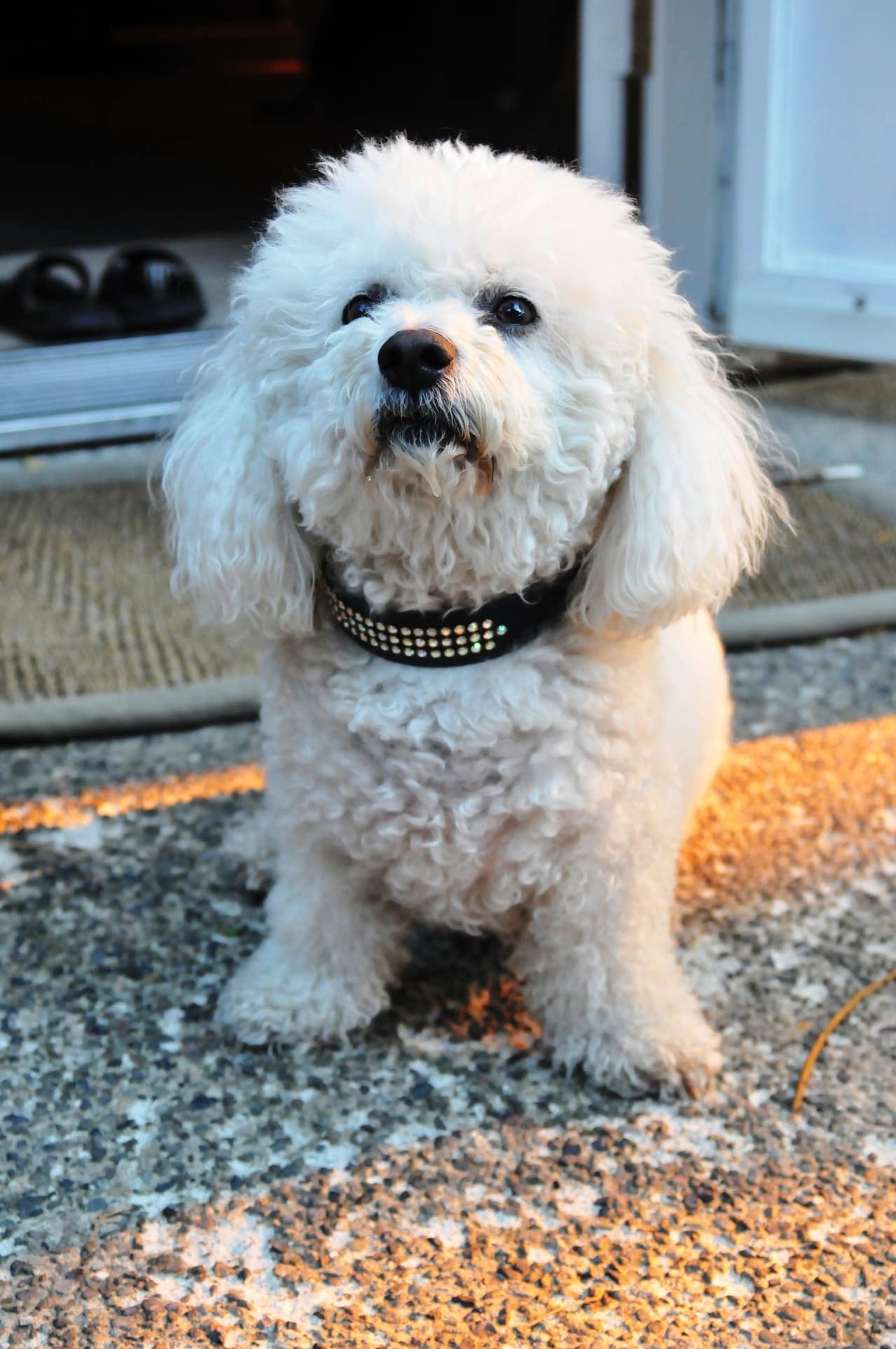
Breeding Bichon Frises is a rewarding endeavor for any dog enthusiast. These charming, hypoallergenic breeds, known for their affectionate traits, need particular attention regarding breeding practices to maintain their vibrant health and jovial temperaments.

Breeding Bichon Frises requires careful attention to health, temperament, and breed standards. The Bichon Frise Club of America emphasizes the importance of genetic screening and responsible breeding practices. By following these guidelines, breeders can help maintain the breed’s signature traits, including their cheerful personality and hypoallergenic coat.
When considering Bichon Frise breeding, it’s crucial to understand the breed’s unique needs. These dogs are prone to certain health issues, such as allergies, which responsible breeders work to minimize through careful selection. The breed’s popularity has grown steadily since its recognition by the American Kennel Club in 1973, making it essential to preserve their best qualities for future generations.
Key Takeaways
- Bichon Frises have a long history as companions to nobility and sailors.
- Responsible breeding involves genetic screening and adherence to breed standards.
- Bichon Frises require special care due to their potential health sensitivities.
History and Origin
The Bichon Frise has ancient roots in the Mediterranean. They were favorites of European nobility for centuries. In the 1300s, Italian sailors brought these dogs to France, where they became popular.
The breed’s modern development began in France. They were originally known as Bichon Tenerife, named after the Spanish island.
In 1956, a French breeder brought Bichons to the United States. The Bichon Frise Club of America was founded in 1964. The American Kennel Club (AKC) recognized the breed in 1973.
Breed Standard
The AKC breed standard describes the ideal Bichon Frise. It sets guidelines for breeders and judges at dog shows.
Key points of the standard include:
- Height: 9.5 to 11.5 inches at the shoulder
- Weight: 12 to 18 pounds
- Coat: White, soft, and fluffy
- Eyes: Dark and round
- Tail: Curved over the back
The standard also covers gait, temperament, and overall appearance. It helps maintain the breed’s unique qualities.
Physical Characteristics
Bichon Frises have a distinctive look. Their white, fluffy coat is their most notable feature. The coat is soft and stands away from the body, giving a powder-puff appearance.
Their face is expressive with dark, round eyes. They have drop ears covered in long hair. Bichons have a compact body and a plumed tail that curves over their back.
Regular grooming is essential to maintain their coat. You’ll need to brush your Bichon daily and get professional grooming every 4-6 weeks.
Temperament and Personality
Bichon Frises are known for their cheerful, friendly nature. They’re affectionate and love to be around people. These dogs often form strong bonds with their families.
You’ll find Bichons to be:
- Playful and energetic
- Good with children and other pets
- Intelligent and trainable
- Adaptable to various living situations
They can be prone to separation anxiety if left alone for long periods. Bichons thrive on attention and companionship. Their charming personality makes them excellent therapy dogs.
Health and Care

Bichon Frises need proper care to stay happy and healthy. Good nutrition, regular exercise, and consistent grooming are key. Knowing common health issues can help you spot problems early.
Common Health Issues
Bichon Frises can face some health problems. Allergies and eye conditions are frequent issues. Keep an eye out for itching, redness, or eye discharge.
These dogs may develop patellar luxation, where the kneecap slips out of place. Watch for limping or odd leg movements.
Dental disease is another concern. Brush your Bichon’s teeth regularly to prevent problems.
Bladder stones can also occur. If your dog strains to pee, see a vet right away.
Regular check-ups help catch issues early. Your vet can guide you on preventive care for these common problems.
Nutrition and Diet
A balanced diet keeps your Bichon Frise healthy. Feed high-quality dog food suited for small breeds.
Measure portions to prevent obesity. Bichons gain weight easily, which can lead to health issues.
Fresh water should always be available. Change it daily to keep it clean.
Avoid human foods that are toxic to dogs, like chocolate or grapes.
Some Bichons have sensitive stomachs. If you notice digestive issues, talk to your vet about special diets.
Treats are fine in moderation. Use them for training, but don’t overdo it.
Exercise and Training
Bichon Frises need daily exercise to stay fit and happy. A 30-minute walk or play session is usually enough.
These dogs love to play. Fetch, tug-of-war, or puzzle toys can keep them active.
Training should start early. Bichons are smart and eager to please.
Use positive reinforcement. Treats and praise work well for these sensitive dogs.
Socialization is important. Expose your Bichon to different people, pets, and situations.
Mental stimulation is key. Teach new tricks or use treat-dispensing toys to keep their minds sharp.
Grooming Essentials
Bichon Frises need regular grooming to keep their coat healthy. Brush daily to prevent mats and tangles.
Bathe your Bichon every 2-3 weeks. Use a gentle dog shampoo to avoid skin irritation.
Trim the hair around the eyes to prevent irritation. This also helps your dog see better.
Clean the ears weekly to prevent infections. Use a dog-safe ear cleaner and cotton ball.
Clip nails every 2-3 weeks or as needed. If you hear clicking on the floor, it’s time for a trim.
Professional grooming every 4-6 weeks helps maintain the classic Bichon look.
Breeding Practices

Breeding Bichon Frises requires careful consideration of ethics, genetics, and responsible practices. Proper breeding ensures healthy puppies and preserves the breed’s unique traits.
Ethical Breeding Guidelines
Ethical Bichon Frise breeding follows strict guidelines. The Bichon Frise Club of America (BFCA) provides a code of ethics for breeders. This code outlines best practices for breeding and care.
Key points include:
- Breed only healthy dogs with good temperaments
- Limit breeding frequency to protect the mother’s health
- Provide proper healthcare and nutrition for breeding dogs
- Socialize puppies before placing them in homes
Breeders must also follow local laws and regulations. They should be transparent about their practices and provide health clearances for breeding dogs.
Finding a Responsible Breeder
When looking for a Bichon Frise puppy, choose a responsible breeder. Good breeders:
- Are members of the BFCA or other recognized breed clubs
- Allow you to visit and see their facilities
- Provide health certificates and genetic testing results
- Ask you questions about your lifestyle and ability to care for a dog
- Offer support and guidance after you take your puppy home
The BFCA maintains a breeder directory to help you find reputable breeders. Always research and visit multiple breeders before making a decision.
Genetics and Litter Considerations
Understanding genetics is crucial for Bichon Frise breeding. Breeders should:
- Test for genetic health issues common in the breed
- Choose breeding pairs that complement each other’s traits
- Avoid breeding dogs with known genetic problems
Litter size for Bichon Frises is typically 3-5 puppies. Breeders should wait until females are 2-5 years old before breeding. Males should be at least 1.5 years old.
Breeding frequency is important. Females should not have more than one litter per year. This protects their health and ensures they can care for each litter properly.
Official Documentation
The Bichon Frise Club of America offers a wealth of official documents. You can access:
- Breed standards
- Health testing requirements
- BFCA mentor requirements
- Sponsorship application forms
The club’s website updates include important bulletins about breed-specific issues. You’ll find a membership directory to connect with other Bichon enthusiasts. The document repository contains:
- Board meeting minutes
- Annual reports
- National specialty show results
Frequently Asked Questions

Breeding Bichon Frises requires careful planning and knowledge. Proper timing, health considerations, and responsible practices are key to successful breeding.
What is the appropriate age to start breeding a Bichon Frise?
The ideal age to start breeding a Bichon Frise is between 2 and 5 years old. This allows the dog to reach full physical and mental maturity.
Female Bichons should have at least two heat cycles before breeding. Male Bichons should be at least 18 months old to ensure proper development.
What are some common breeding problems encountered with Bichon Frises?
Bichon Frises can face several breeding challenges. Small litter sizes are common, often with only 1-3 puppies per litter.
Difficulty whelping due to narrow pelvic canals can occur. C-sections may be necessary in some cases. Genetic health issues like hip dysplasia and eye problems should be screened for before breeding.
How can one identify a reputable Bichon Frise breeder?
A reputable Bichon Frise breeder will perform health tests on their breeding dogs. They should provide health certificates and be open about their breeding practices.
Look for breeders who are members of recognized breed clubs. They should allow you to visit their facility and meet the parent dogs. Avoid breeders who have multiple litters available at once or always have puppies.
What is the standard gestation period for a Bichon Frise?
The standard gestation period for a Bichon Frise is about 63 days. This is the same as most dog breeds.
Pregnancy can be confirmed through veterinary examination around 25-35 days after mating. Ultrasounds can detect puppies as early as 21 days after breeding.
What specific care is required for a Bichon Frise during pregnancy?
Pregnant Bichon Frises need a balanced diet with increased calories in the later stages of pregnancy. Regular, gentle exercise is important to maintain fitness.
Veterinary check-ups should be scheduled throughout the pregnancy. Prepare a quiet, comfortable whelping area a few weeks before the due date.
At what point in a Bichon Frise’s heat cycle is it best to breed?
The best time to breed a Bichon Frise is typically 10-14 days after the start of her heat cycle. This is when she is most fertile.
Ovulation usually occurs around day 11 or 12. Breeding every other day during this fertile period can increase the chances of conception.






These are wonderful dogs and beautiful to look at. We love ours!